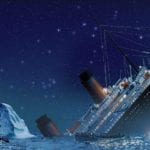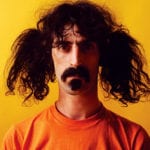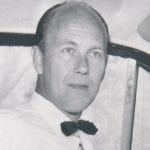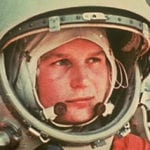 Crime
Crime  Crime
Crime  Technology
Technology 10 Hilariously Over-Engineered Solutions to Simple Problems
 Miscellaneous
Miscellaneous 10 Ironic News Stories Straight out of an Alanis Morissette Song
 Politics
Politics 10 Lesser-Known Far-Right Groups of the 21st Century
 History
History Ten Revealing Facts about Daily Domestic Life in the Old West
 Weird Stuff
Weird Stuff 10 Everyday Products Surprisingly Made by Inmates
 Movies and TV
Movies and TV 10 Actors Dragged out of Retirement for One Key Role
 Creepy
Creepy 10 Lesser-Known Shapeshifter Legends from Around the World
 Animals
Animals 10 Amazing Animal Tales from the Ancient World
 Gaming
Gaming 10 Game Characters Everyone Hated Playing
 Crime
Crime 10 Terrifying Serial Killers from Centuries Ago
 Technology
Technology 10 Hilariously Over-Engineered Solutions to Simple Problems
 Miscellaneous
Miscellaneous 10 Ironic News Stories Straight out of an Alanis Morissette Song
Who's Behind Listverse?

Jamie Frater
Head Editor
Jamie founded Listverse due to an insatiable desire to share fascinating, obscure, and bizarre facts. He has been a guest speaker on numerous national radio and television stations and is a five time published author.
More About Us Politics
Politics 10 Lesser-Known Far-Right Groups of the 21st Century
 History
History Ten Revealing Facts about Daily Domestic Life in the Old West
 Weird Stuff
Weird Stuff 10 Everyday Products Surprisingly Made by Inmates
 Movies and TV
Movies and TV 10 Actors Dragged out of Retirement for One Key Role
 Creepy
Creepy 10 Lesser-Known Shapeshifter Legends from Around the World
 Animals
Animals 10 Amazing Animal Tales from the Ancient World
 Gaming
Gaming 10 Game Characters Everyone Hated Playing
10 Forgotten People Who Nearly Changed The Course Of History
History turns on a billion tiny moments. Thanks to luck or errors of judgment, a man like John Wilkes Booth can walk into Lincoln’s theater box and change the world. But what happens when one of those moments turns the other way? For every Alexander Fleming or Lee Harvey Oswald, there are a dozen others who stood on the threshold of history, only to see the door slammed shut in their faces.
10An Anonymous Servant Nearly Averted World War I

The assassination of Archduke Franz Ferdinand on the streets of Sarajevo in June 1914 led directly to World War I, which in turn led to the rise of Hitler and World War II and the creation of the modern world. Yet all this was nearly averted by a single clumsy servant.
In November 1913, Archduke Ferdinand visited the Duke of Portland in Britain as part of a diplomatic push. Desperate to show his eminent guest every hospitality, the Duke arranged for Ferdinand to go pheasant hunting on his estate. As the two made their way across the vast fields, one of the servants carrying the guns happened to trip. The gun dropped from his grip, hit the ground, and discharged both barrels right at the visiting Archduke.
The trip could have changed the world. Had Ferdinand died or been severely wounded at the duke’s estate, his nephew Charles would have become Austria’s new heir presumptive, and any attempt to assassinate him would have gone differently or even failed altogether. Instead, the bullet missed Ferdinand by inches. The Archduke returned home in good health, and nine months later, the world was at war. The anonymous servant, meanwhile, was completely forgotten.
9Peter Godwin Almost Assassinated Ian Smith

In 1965, white supremacist Ian Smith illegally declared Rhodesia independent from the UK. His actions led to a protracted civil war, the creation of Zimbabwe, and the rise of Robert Mugabe. Yet things could have turned out very differently. A disgruntled guard nearly brought the war crashing to an early close when he decided to assassinate Smith.
It was 1976, and Peter Godwin was doing his military service as part of Rhodesia’s British South Africa Police and was assigned to protect Smith. Furious at the war being dragged out (along with his conscription), Godwin found himself alone with Smith as the prime minister went over his papers. At that point, Godwin realized he could easily kill him.
He had bullets in his gun and military training. Smith was just a few feet away. Writing about that moment later, Godwin claimed he put his hand to his holster and saw Smith look into his eyes. He seemed to be begging Godwin to give him an honorable way out of this devastating war.
Smith’s personal bodyguard chose that exact moment to enter the room. The spell was broken, and Godwin left quickly. The war dragged on for four more years and resulted in a guerrilla known as Robert Mugabe consolidating his power base at the expense of more moderate Zimbabweans. Had Godwin pulled the trigger, it’s possible we’d have never heard of Africa’s cruelest dictator.
8Thomas Wedgewood Nearly Invented Photography (In 1802)

In 1826, Joseph Nicephore Niepce placed a bitumen-coated plate in a camera obscura and exposed it to the light. The result was the world’s first photograph. It proved so inspiring that commercial photography soon followed. The age of the image was born.
Niepce was nearly beaten to his world-changing invention. Had fate not conspired against him, Thomas Wedgewood might have given us photography 20 years earlier.
The son of an industrialist and famous abolitionist, Thomas spent his days inventing and hanging out with men like Samuel Coleridge and William Wordsworth. By the beginning of the 19th century, he’d already realized the chemical action of light could be used for creating images. Although his early attempts to create a functioning camera failed, his work still progressed to the point where the Royal Institution began to take notice. It might have gone further still, were it not for Thomas’s weak health. Chronically ill for most of his life, he finally died in 1805, aged 34.
Had he lived a few years longer, the photographic revolution may have gotten started a generation early. Aside from changing our cultural landscape, we might now have photographs of subjects as diverse as Samuel Coleridge and the Napoleonic Wars.
7Stephan Goldner Nearly Destroyed The Tinned Food Industry

Unlikely as it seems, canned food changed the world. It allowed explorers to strike out for distant lands like Antarctica, kept the world’s armies free of malnutrition on campaigns, and improved health among the desperately poor. A world without canned food would have been smaller, meaner, and a lot more prone to scurvy.
It’s a world we came very close to living in. Thanks to a cheap crook called Stephan Goldner, canned food was nearly outlawed as a serious health risk.
In 1845, canned food was mostly used by the British Navy as a way of keeping their sailors in Empire-building shape. The contract for supplying all these millions of cans had fallen to Stephan Goldner. Stephan wasn’t the sort of man to let anything stand in the way of profit. He used cheap meat, based his factory in modern Romania, and cut all sorts of corners. Unfortunately, that included cooking time.
By 1852, Stephan’s quality control was so bad that the vast majority of his cans contained uncooked, rotting dog meat. The Navy was forced to throw out more than 300,000 kilograms (600,000 lb) of the stuff, severely denting public confidence. For the next 10 years, people avoided canned food, with the BBC claiming the public was nearly put off for good.
6Mark Rossini Could Have Stopped 9/11

Mark Rossini should be known as a hero. A former FBI agent, he spent the late ’90s and early 2000s tracking terrorists. We’re not talking small-time jihadists, either. At one point, Rossini came close to averting 9/11.
In July 2001, Khalid Al-Mihdhar and Nawaf Al-Hazmi entered the United States. Both men were known to the FBI for their links to radical Islam and support of terrorism. At the time, Rossini was assigned to the CIA’s “Alec station”—the code name for the group of agents watching bin Laden and his associates. When Rossini found out about Al-Mihdhar and Al-Hazmi, he and another colleague working with the CIA, Doug Miller, decided to inform the FBI. They wrote a draft report for their superiors, only for the CIA to block them from sending it. A couple of months later, Al-Mihdhar vanished. Shortly after that, he flew a plane into the World Trade Center.
Had Rossini and Miller been able to get their report to the FBI, all 3,000 lives could have been saved. Rather than simply monitor the two suspects, the agency would have likely swooped in. Unfortunately, the CIA was at open war with their rivals. Intelligence wasn’t shared, and communication was blocked. Scared of upsetting his superiors, Rossini sat on his information. In doing so, he missed his chance to become a hero.
5Alexander Bain Almost Gave Us The Fax Machine (In 1843)

A crucial piece of technology until email rendered it pointless, the fax machine’s commercial history goes all the way back to 1863, when Giovanni Caselli introduced a line between Lyon and Paris. It should have gone back further still. Scottish mechanic Alexander Bain had a prototype fax machine up and running as early as 1843.
To put it in perspective, that predates the sending of the first telegraph message. To put that in even more perspective, it predates the bicycle, internal combustion engine, the Irish potato famine, and the Donner Party expedition. Had Bain managed to popularize his new invention, communications could have moved at a much faster rate. Try to imagine Edgar Allan Poe (who died in 1849) casually receiving a fax.
However, Bain never got beyond the prototype stage. Although his fax machine worked, he refused to show it to anyone. It wasn’t until 1851 that Frederick Bakewell demonstrated the first working fax machine, and another 12 years passed before Giovanni Caselli convinced people to actually use one.
4Violet Gibson Came Close To Killing Mussolini

Mussolini’s fascist government was responsible for around three million deaths, and his support for Germany helped legitimize Hitler’s genocidal racism. Yet all this death and suffering was nearly averted in 1926, when the mentally disturbed Violet Gibson shot and nearly killed him.
An old, upper-class Irish woman with paranoid religious delusions, Violet had come to Rome after World War I to live in a convent. She spent most of her time doing jigsaws and reading about Abraham sacrificing Isaac, sometimes wandering around with a knife clutched in her hand. She had twice been admitted to a mental asylum but wasn’t thought dangerous. Then one day, she took a gun and went into the streets of Rome. Mussolini was passing nearby after opening a hospital. Violet aimed the gun at his head and fired.
Mussolini turned at that exact second, and instead of killing him, the bullet blew a hole through his nose. When Violet tried to fire a second time, the gun jammed. Before she could try a third shot, the crowd attacked and nearly lynched her.
Ironically, she was saved by Mussolini’s fascist police. They arrested her and deported her to England, where she was declared insane and locked away. Mussolini survived with barely a scratch.
3Jack Paar Almost Convinced Ed Sullivan To Cancel The Beatles
After the Moon landing, it was the most significant television event of the 20th century. When The Beatles went on Ed Sullivan’s show, they didn’t just change music—they set the course of American pop culture for decades to come. Today, the videos are iconic. They nearly didn’t happen. Thanks to Jack Paar, America nearly missed out on the greatest musical moment in history.
By the end of 1963, Beatles records were already starting to sell in some states. Ed Sullivan was spreading the word that he had the British band booked for February, and there was a sense of excitement in the industry. A rival host to Sullivan over on NBC, Paar decided he couldn’t let this slip by him. Contacting the BBC, he secured the rights to some old Beatles concert footage. He then played the whole lot during his show on January 3, 1964.
Enraged at being scooped, Sullivan called his European talent coordinator and got him to cancel The Beatles. It wasn’t until two days later that he realized his mistake and rebooked them, setting the stage for their most famous show. Had things gone slightly differently, one of pop culture’s greatest moments would have never even happened.
2Norman Morrison Almost Gave Us The Web (In 1983)

Imagine sitting at home before a screen. You’re looking up the New York Times front page while buying a new appliance for your kitchen and responding to messages from friends. Later, you’ll check your online banking before booking some flight tickets. Could be any time in the last 20 years, right? Wrong. In our hypothetical scenario, it’s 1983.
On October 30 that year, Norman Morrison of the company Knight Ridder teamed up with AT&T to launch a consumer videotext service in Miami known as Viewtron. Costing $12 a month, plus $1 for every hour spent online, Viewtron was meant to revolutionize the home consumer market. Users could read the news online before it hit the papers, send messages to friends, and even make purchases. It was the World Wide Web before Geocities took off but limited exclusively to the Florida area.
Unfortunately, Florida wasn’t ready for the Internet, or anything remotely like it. Although companies were predicting home information technology would become a multibillion-dollar industry by 1995, Viewtron picked up a mere 2,700 subscribers. To make matters worse, it was costing them close to $50 million. Knight Ridder finally pulled the plug in 1986, and Norman Morrison vanished back into obscurity.
1Valentin Savitsky Nearly Killed Us All

On October 27, 1962, Valentin Savitsky nearly did what no other human in history can claim to have done. He very nearly destroyed the world.
If you’ve ever taken a history class, you’ll recognize the date. It was the height of the Cuban Missile Crisis. A lost American plane had just breached Soviet airspace, while Cuba had shot down another one only moments before. In the middle of the ocean, the USS Beale had started dropping depth charges on a Russian nuclear sub in a misguided attempt to make it surface. In the tiny control room, Captain Valentin Savitsky had been cut off from contact with the outside world. Seeing the depth charges explode and the aircraft carriers swarming, he assumed World War III had broken out. So he did what any commander would do in the circumstances. He ordered the launch of a nuclear torpedo.
The blast would have killed everyone aboard the USS Beale. More importantly, it would have triggered an instant retaliation attack. Nuclear bombs may have rained down on Britain, Europe, China, and Russia. Planes would have been scrambled to bomb America, and a few would have gotten through. Billions of people would have died as entire cities went up in smoke. A nuclear winter would have paralyzed the globe. When the dust finally settled, life would have no longer been worth living.
Luckily, Savitsky had a trusted co-commander onboard who talked him out of launching. Instead, they surfaced, realized World War III hadn’t started, and turned back to Russia. If things had gone even slightly differently, none of us would be around to read this now.








